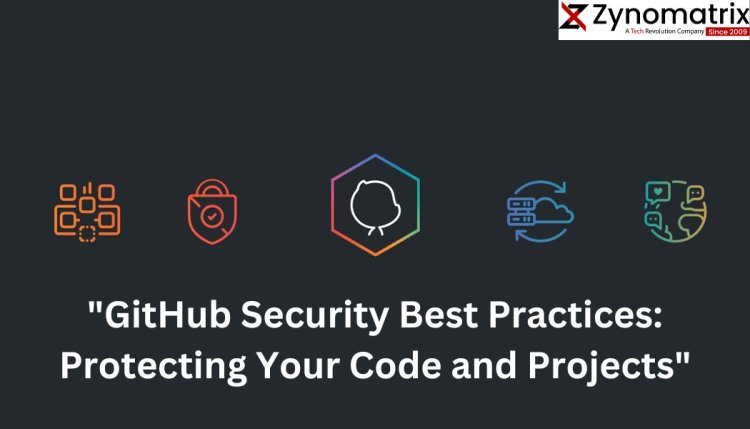"GitHub Security Best Practices: Protecting Your Code and Projects"
The security of your code and projects on GitHub is not a matter to be taken lightly. This blog post is your comprehensive guide to GitHub security best practices. We will discuss how to protect your repositories, safeguard your organization's assets, and ensure that your codebase remains safe from vulnerabilities and threats. You'll gain insights into strategies for securing your GitHub account, managing access, implementing secure coding practices, and leveraging GitHub's security tools.

Introduction:
Security is a paramount concern in today's digital world, and for developers, safeguarding code and projects is essential. GitHub, the leading platform for version control and collaboration, offers a range of security features and best practices to help protect your codebase. In this blog post, we'll delve into GitHub's security offerings and explore best practices to fortify your projects. Whether you're a developer or a project manager, understanding and implementing these strategies can bolster your code's defenses and maintain a secure development environment.
GitHub Security Best Practices: Protecting Your Code and Projects
Security is a paramount concern in today's digital world, and for developers, safeguarding code and projects is essential. GitHub, the leading platform for version control and collaboration, offers a range of security features and best practices to help protect your codebase. In this blog post, we'll delve into GitHub's security offerings and explore best practices to fortify your projects. Whether you're a developer or a project manager, understanding and implementing these strategies can bolster your code's defenses and maintain a secure development environment.
Understanding GitHub Security
GitHub recognizes the critical importance of security, and it provides a robust set of features to help protect your repositories and code. These features cover areas such as authentication, access control, code scanning, dependency analysis, and more. By understanding and utilizing these tools effectively, you can significantly reduce the risk of security incidents.
Securing Your GitHub Account
The first line of defense for your code on GitHub is your own account. Ensuring that your account is protected with a strong, unique password is the initial step. Two-factor authentication (2FA) is highly recommended, as it adds an extra layer of security to your login process.
Access Control and Permissions
Controlling who has access to your repositories is vital. GitHub provides granular access control features, allowing you to manage who can view, clone, push, or merge code. For organizations, using teams to group users with similar access needs can simplify access control.
Secure Coding Practices
Security starts with the code itself. Writing secure code, free from vulnerabilities, is a fundamental best practice. GitHub offers various tools like code scanning and dependency analysis to help you identify and address security issues in your codebase.
Leveraging GitHub Security Tools
GitHub integrates several security tools into its platform. For instance, GitHub Actions can automate security checks, while CodeQL can perform advanced code scanning. Learning to use these tools effectively can make a substantial difference in your code's security.
Managing Dependencies
One common source of vulnerabilities is through third-party dependencies. GitHub provides tools to monitor and update dependencies to ensure you're not using outdated or vulnerable libraries in your projects.
Security Advisories and Notifications
GitHub keeps you informed about vulnerabilities in your dependencies and repositories. Utilizing security advisories and notifications ensures you're aware of potential issues and can take action promptly.
Regular Audits and Testing
Regularly auditing your code and running security tests are critical steps in maintaining a secure codebase. This ongoing diligence helps you identify and address vulnerabilities before they can be exploited.
Incident Response and Recovery
Despite the best preventive measures, incidents may still occur. Having an incident response plan in place can help minimize the impact and facilitate recovery.
What's Your Reaction?





















